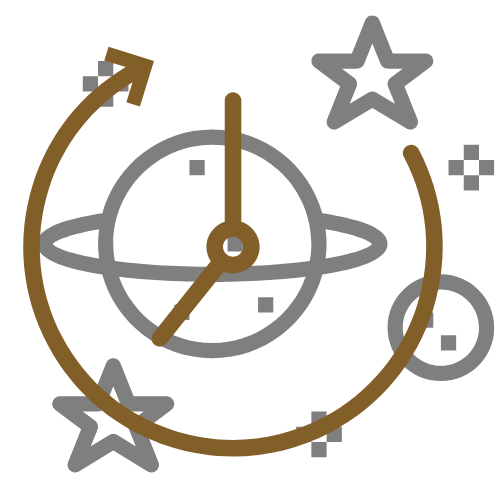Boundless Education
Who we are is shaped by time and space.
We learn a lot from those who we spend a lot of time with, and we constantly reinvent ourselves according to the culture of our current location.
Learning exists anywhere and everywhere: it does not stop when we part ways with our schoolmates, and when we are not in traditional classroom settings.
In the current era, interacting with the people that we know in the least time-consuming and most cost-effective way would mean to access the Internet. Our instant messaging and social media applications are omnipresent tools that are always there for us. It helps us with no time limit, because it is not restricted by time zones; it is a true master of time that does not even sleep.
Interestingly, instant access to all disciplines of life – from cooking to exercising; entertainment to work; shopping to business; spirituality to mathematics; and even travelling to politics – is also made possible by the Internet. It is an omniscient technology that allows us to access all spaces without being physically present. It can teach cooking without being in the kitchen; it can provide entertainment without being in the cinema; it can establish a business without having a shop; it can prove mathematical formulas without being in a school; and it can even transport us to other countries without being in an airplane. It is a true master of space that knows how to teleport.
The omnipresence and omniscience of the Internet makes it an omnipotent medium: a new god.
The concept of literacy bows to this venerable master.
In the 2009 Parisian Love advertisement of Google, it has revealed itself as a true loyal companion. Through a simple video, it boasted its power as a search engine. It helped a man to study abroad in France, to find cafes near the Louvre, to translate words in French, to impress a French girl, to make long distance relationship possible, and to assemble a crib. Google did not only serve as his study advisor, but also as his wingman.
Information is now free and instant. Sugata Mitra's Hole in the Wall experiment in 1999 has also proven how kids can easily teach themselves to harness this power. In a slum wall in New Delhi, Mitra made some computers available for everyone. It was astonishing to see how the kids learned to navigate the technology without instructions. Two decades have already passed since this study, so it is not difficult for us to get this picture. Furious parents can use tablets and phones to convice their kids to shut up.
However, instant access to information is not tantamount to the improvement of education. Speed in the distribution of learning also means that misinformation, disinformation, and malinformation can easily spread.
In the cyberspace, knowing how to count, read, and write does not mean being literate. Technical know-how on navigating the Web is not also enough. The logic lies on the concept of school enrollment: when we have paid the tuition fees, bought a school uniform, and attended a class, it does not automatically mean that we have already understood all the lessons from the teachers; similarly, having access to a computer, learning how to use it, and reading social media news does not make us officially educated.
We shall only be considered literate when we know how to evaluate digital information critically. As Toffler claimed in the highlighted quote above, it not only about learning, but also about unlearning and relearning.
This is the hard one: in the same way that we learn easily, we are also expected to unlearn and relearn fast.
Without external help, it is easy to teach ourselves, but it is not easy to spot mistakes by ourselves to prove ourselves wrong. COVID-19 myths are classic examples.
When we saw a viral post in social media about the power of bananas to cure COVID-19, we were so happy to receive that free instant helpful information. We gained hope from a "miracle" fruit and bought lots of it. Soon, we found it hard to move on that the information is false, and we were left heartbroken with the soaring price of bananas.
Alarmingly, if we continue to believe that we are 100% educated by all online information, we will remain doomed in the post-truth era where public opinion is shaped by personal beliefs and emotions than actual facts.
Marshall McLuhan claimed that real education is taking place through the media. For him, the press, radio, film, and TV during his time were no different to a book in educating the students. As he saw education in entertainment, he called for the application of these technologies to also instruct about its proper usage. If a film can influence our understanding of history, then it must be used to teach history. In our current era, as the Internet transcends our time and space, how can we use it to be properly educated?
Eat bananas?
Click my pic below to return at the Digital Galaxy main page. *lol, judged*

